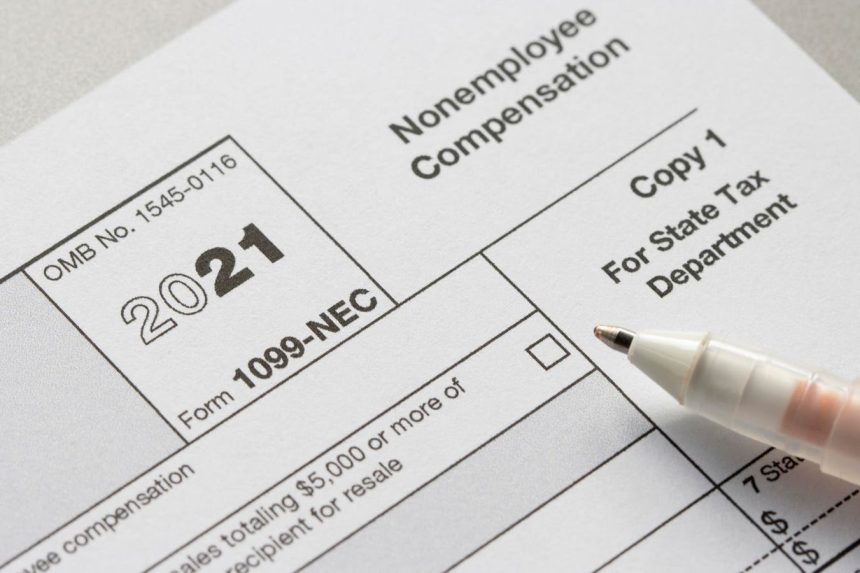In certain instances, taxpayers are required to file information returns with the IRS. For example, companies that pay independent contractors in excess of $600 are required to file an IRS Form 1099-NEC, Nonemployee Compensation. If a taxpayer fails to file an information return, the IRS may impose penalties for the failure.
In addition to late-filing penalties, the IRS may also impose penalties against taxpayers who timely file but file improperly. In other words, companies that timely mail IRS Forms 1099-NEC may nevertheless be subject to penalties if they should have filed the information returns electronically.
Prior to 2024, companies generally had a requirement to file information returns electronically if they had 250 or more information returns in a calendar year. This exemption was changed, however, through passage of the Taxpayer First Act (TFA). Under the TFA, Treasury was authorized to prescribe regulations to decrease the 250-filing exemption. Treasury released final regulations in 2023, making 2024 (i.e., 2023 related filings due in 2023) and later filings of ten or more information returns now subject to electronic filing. With the electronic exemption significantly reduced, more companies can expect to find themselves subject to penalties for wrongful filings, even if they mail the information returns timely. In these instances, the filers will have to rely on reasonable cause defenses for a waiver or abatement of the penalties.
Reasonable Cause
Reasonable cause is a term of art in federal tax law. Generally, it means ordinary business care and prudence with respect to a filing obligation (here, the electronic information return requirement). For information return penalties, however, governing regulations define reasonable cause further to have two necessary requirements. First, the filer must show a significant mitigating factor or an impediment. Second, the filer must show that it acted in a responsible manner both before and after the failure occurred.
Significant Mitigating Factors
To establish reasonable cause due to significant mitigating factors, the filer must show that there were significant factors that caused the failure. The regulations provide some helpful examples, which include: (i) the filer was never required to file the specific information return in prior years, or (ii) the filer has an established history of complying with the information return reporting requirements.
Accordingly, for penalties associated with the failure to file electronically, companies may be able to show reasonable cause by contending that they were never subject to the electronic filing requirements in prior years or that they otherwise have a clean compliance record with the IRS.
Impediment Factors
To establish reasonable cause due to an impediment, the filer must show that the failure was due to events beyond the filer’s control. Again, the regulations provide some helpful examples, which include: (i) the unavailability of relevant business records, and (ii) certain actions attributable to third parties, such as the IRS or an agent.
Perhaps most relevant to the electronic filing penalty, taxpayers who relied on a tax preparer may be able to argue for an impediment factor. For example, companies that have historically relied on tax preparers to file information returns may be able to argue an impediment existed if the preparer failed to properly inform the company of the new electronic filing requirement.
Responsible Manner
To qualify for reasonable cause, filers must also show that they acted in a responsible manner both before and after the failure. Under the regulations, this means that the filer undertook significant steps to avoid or mitigate the failure, including: (i) requesting an extension of time to file, if possible; (ii) attempting to prevent an impediment or failure, if it was foreseeable, and (iii) correcting the failure as quickly as possible once the impediment was removed or the failure was discovered.
Taxpayers who promptly correct the failure to file electronically after discovery of the error may have good grounds to argue that they acted in a responsible manner. In addition, taxpayers who take concrete steps to avoid this type of failure in the future could likely show they acted in a responsible manner.
Conclusion
The penalty for failure to file an information return electronically is not cheap. Currently, for 2024 filings, the penalty is $310 per wrongly filed information return. Worse, higher penalties may apply if the IRS concludes the failure was due to intentional disregard. Taxpayers who wish to escape the failure-to-properly file information return penalties should consult the governing regulations prior to submitting a reasonable cause statement. Those regulations can be found here.
Read the full article here
















